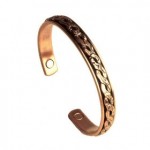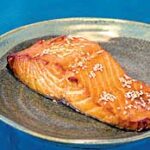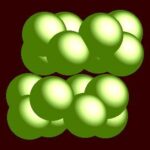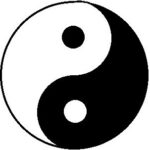 Folklore remedies for pain and inflammation support these bracelets to treat rheumatoid arthritis.
Folklore remedies for pain and inflammation support these bracelets to treat rheumatoid arthritis.
Researchers at The University of York, in the UK studied their effects. Continue reading Static magnets and copper fail to improve arthritis
 Folklore remedies for pain and inflammation support these bracelets to treat rheumatoid arthritis.
Folklore remedies for pain and inflammation support these bracelets to treat rheumatoid arthritis.
Researchers at The University of York, in the UK studied their effects. Continue reading Static magnets and copper fail to improve arthritis
![]() People with hereditary hemorrhagic telangiectasia (HHT) have abnormalities in their blood vessels. The most common manifestation is spontaneous and recurrent nosebleeds (epistaxis). More on HHT is here.
People with hereditary hemorrhagic telangiectasia (HHT) have abnormalities in their blood vessels. The most common manifestation is spontaneous and recurrent nosebleeds (epistaxis). More on HHT is here.
Researchers at the Johns Hopkins Sinus Center, in Baltimore, Maryland, studied the effects of sesame/rose geranium oil. Continue reading Topical sesame/rose geranium oil treats hereditary hemorrhagic telangiectasia
 About 15 years ago, researchers in the US published the results of a study showing that taking selenium supplements lowered the risk of prostate cancer.
About 15 years ago, researchers in the US published the results of a study showing that taking selenium supplements lowered the risk of prostate cancer.
Now, researchers in the UK have examined all the available evidence for selenium intake, selenium levels in the body, and prostate cancer risk. Continue reading Does selenium reduce the risk for prostate cancer?
 Using data from a study of pregnant women from an inland area in the US South, researchers at Duke University, in Durham, North Carolina, sought to understand the fish consumption habits and associated mercury levels. Continue reading Demographics and the risk for high mercury levels?
Using data from a study of pregnant women from an inland area in the US South, researchers at Duke University, in Durham, North Carolina, sought to understand the fish consumption habits and associated mercury levels. Continue reading Demographics and the risk for high mercury levels?
 Researchers at Klein Buendel Inc, in Golden, Colotrado, examined compliance with sunscreen advice at ski areas in western North America. Continue reading Few skiers use sunscreen as directed
Researchers at Klein Buendel Inc, in Golden, Colotrado, examined compliance with sunscreen advice at ski areas in western North America. Continue reading Few skiers use sunscreen as directed
 Researchers in the US and UK investigated the effect of selenium on lipid blood levels. Continue reading Selenium supplements in adults with high cholesterol
Researchers in the US and UK investigated the effect of selenium on lipid blood levels. Continue reading Selenium supplements in adults with high cholesterol
 Dietary supplement use has steadily increased since the 1970s.
Dietary supplement use has steadily increased since the 1970s.
Researchers at the National Institutes of Health estimated dietary supplement use based on the National Health and Nutrition Examination Survey (NHANES) 2003–2006, a nationally representative survey. Continue reading Increasing popularity of dietary supplements
 The Selenium and Vitamin E Cancer Prevention Trial (SELECT) found no reduction in risk of prostate cancer with vitamin E supplements.
The Selenium and Vitamin E Cancer Prevention Trial (SELECT) found no reduction in risk of prostate cancer with vitamin E supplements.
As a follow-up, researchers in the US determined the long-term effect of vitamin E and selenium in relatively healthy men. Continue reading Vitamin E and an increased risk of prostate cancer
 Wilson disease is a genetic disorder that affects copper storage, leading to liver failure and neurologic deterioration.
Wilson disease is a genetic disorder that affects copper storage, leading to liver failure and neurologic deterioration.
Researchers at the University Hospital of Heidelberg, in Germany, studied the long-term outcomes copper chelators vs zinc salts. Continue reading Value of zinc to treat Wilson disease
 During the New Clinical Drug Evaluation Unit Meeting, researchers at David Geffen School of Medicine at the University of California, Los Angeles, reported that adding tai chi to escitalopram (Lexapro, Cipralex, Seroplex) treatment further reduced the severity of depression. Continue reading Adding tai chi improves antidepressant drug therapy
During the New Clinical Drug Evaluation Unit Meeting, researchers at David Geffen School of Medicine at the University of California, Los Angeles, reported that adding tai chi to escitalopram (Lexapro, Cipralex, Seroplex) treatment further reduced the severity of depression. Continue reading Adding tai chi improves antidepressant drug therapy
 Upper respiratory tract infections frequently exacerbate chronic-obstructive pulmonary disease (COPD).
Upper respiratory tract infections frequently exacerbate chronic-obstructive pulmonary disease (COPD).
Researchers in Indonesia and Switzerland evaluated the effect of Echinacea purpurea + micronutrients in order to reduce the severity of these infections. Continue reading Lack of effect of an Echinacea cocktail on exacerbations of COPD
 High-grade prostatic intraepithelial neoplasia (HGPIN) is a precursor of invasive prostate cancer (PCa). Some preliminary evidence suggests vitamin E, selenium, and soy protein may prevent progression of HGPIN to PCa.
High-grade prostatic intraepithelial neoplasia (HGPIN) is a precursor of invasive prostate cancer (PCa). Some preliminary evidence suggests vitamin E, selenium, and soy protein may prevent progression of HGPIN to PCa.
Researchers at Princess Margaret Hospital, in Toronto, Ontario tested this hypothesis. Continue reading Vitamin E, selenium, + soy to treat prostate cancer?
 The Centers for Disease Control and Prevention’s guidelines for hand hygiene state that alcohol-based hand wipes are not an effective substitute for alcohol-based hand rub or hand washing with an antimicrobial soap and water.
The Centers for Disease Control and Prevention’s guidelines for hand hygiene state that alcohol-based hand wipes are not an effective substitute for alcohol-based hand rub or hand washing with an antimicrobial soap and water.
So, researchers at the University of Pittsburgh, in Pennsylvania upped the alcohol content of the wipes. Continue reading Improving alcohol-based hand wipes
 The American Psychiatric Association’s Task Force on Complementary and Alternative Medicine reviewed the evidence and report their findings.
The American Psychiatric Association’s Task Force on Complementary and Alternative Medicine reviewed the evidence and report their findings.
Here are their findings. Continue reading CAM for major depressive therapy
 Researchers at Goulds Naturopathica, in Hobart TAS, Australia, reviewed the evidence. Continue reading CAM (not St John’s wort) to treat depression
Researchers at Goulds Naturopathica, in Hobart TAS, Australia, reviewed the evidence. Continue reading CAM (not St John’s wort) to treat depression
 Medscape reports from the 50th Interscience Conference on Antimicrobial Agents and Chemotherapy that researchers at the University of Minneapolis, in Minnesota, studied high school wrestlers who used skin wipes after each match during a marathon day of wrestling.
Medscape reports from the 50th Interscience Conference on Antimicrobial Agents and Chemotherapy that researchers at the University of Minneapolis, in Minnesota, studied high school wrestlers who used skin wipes after each match during a marathon day of wrestling.
The objective was to compare soap and water to alcohol swabs. Continue reading Soap and water wipes reduce infections in wrestlers
 During the XVIII International AIDS Conference, researchers at Florida International University, in Miami, and other institutions in the US and Botswana reported the benefits of micronutrients. Continue reading Benefits of micronutrients in people with HIV
During the XVIII International AIDS Conference, researchers at Florida International University, in Miami, and other institutions in the US and Botswana reported the benefits of micronutrients. Continue reading Benefits of micronutrients in people with HIV
 HIV infection and the long-term use of antiretroviral drugs are associated with increased mitochondrial damage and oxidative stress.
HIV infection and the long-term use of antiretroviral drugs are associated with increased mitochondrial damage and oxidative stress.
During the XVIII International AIDS Conference, researchers at Florida International University, in Miami, and other institutions in the US reported beneficial effects of antioxidant supplementation on immune function and reducing mitochondrial damage. Continue reading Benefits of antioxidant treatment in patients with HIV
 Researchers at the National University of Singapore surveyed the use of CAM in residents of Singapore who had head and neck cancer.
Researchers at the National University of Singapore surveyed the use of CAM in residents of Singapore who had head and neck cancer.
Here are their findings compared to other countries where similar studies have been conducted. Continue reading Use of CAM in patients with head and neck cancer
 Evidence for CAM to treat depression, anxiety, sleep disorders, and attention-deficit/hyperactivity disorder (ADHD) has been reviewed by researchers at Louisiana State University Health Sciences Center, in Kenner.
Evidence for CAM to treat depression, anxiety, sleep disorders, and attention-deficit/hyperactivity disorder (ADHD) has been reviewed by researchers at Louisiana State University Health Sciences Center, in Kenner.
Here’s what we know. Continue reading Review of CAM for behavioral health